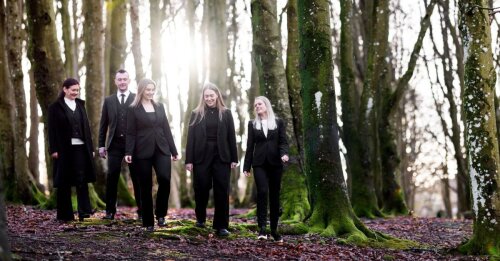Best Faith-Based Law Lawyers in Norway
Share your needs with us, get contacted by law firms.
Free. Takes 2 min.
Or refine your search by selecting a city:
List of the best lawyers in Norway
About Faith-Based Law in Norway
Faith-based law in Norway refers to the intersection of legal principles and religious beliefs as applied within the legal system. While Norway maintains a clear separation between church and state, it recognizes the significance of religious freedom and allows religious communities a degree of autonomy to govern internal matters according to their faith. This can affect areas like family law, education, and cultural rights. It’s essential for individuals to understand how faith-based considerations interact with secular laws in these contexts.
Why You May Need a Lawyer
Individuals or organizations may seek legal advice in faith-based law for several reasons. These could include resolving conflicts related to religious rights in family matters such as marriage and divorce, understanding religious accommodation in the workplace, or dealing with issues of discrimination or defamation based on religious beliefs. Religious organizations may require legal guidance on the governance of their entities or in matters of charity law compliance. Furthermore, navigating the registration process for faith communities seeking official recognition in Norway may necessitate legal assistance.
Local Laws Overview
In Norway, religious freedom is protected under both the Constitution and the Human Rights Act, ensuring individuals can practice their faith freely. Specific laws impact faith-based matters, such as the Marriage Act, which permits religious organizations to conduct marriages according to their rites, and the Faith and Life Stance Communities Act, which sets the framework for religious organizations’ operations. The Anti-Discrimination Act also plays a vital role, protecting against discrimination on religious grounds in various sectors including employment and education. Understanding these laws and how they apply to specific situations is crucial for ensuring rights are upheld.
Frequently Asked Questions
What is the role of faith-based law in family matters like marriage?
Faith-based considerations can play a role in marriage ceremonies, divorce proceedings, and the determination of parenting responsibilities, provided they align with Norwegian law.
How does Norway accommodate religious practices in the workplace?
Employers are generally required to make reasonable accommodations for employees’ religious practices unless it causes undue hardship on the operation of the business.
Is religious discrimination prohibited by law in Norway?
Yes, the Anti-Discrimination Act prohibits discrimination based on religion in various contexts, including employment, education, and access to services.
Can religious symbols be worn in public schools in Norway?
There is no national ban on religious symbols in public schools, but schools may have their policies, which must be non-discriminatory and respectful of individual rights.
How can a religious organization become officially recognized in Norway?
Religious organizations must register with the County Governor to gain legal recognition, which involves meeting certain criteria laid out by the Norwegian government.
Are faith-based arbitration services available in Norway?
Yes, faith-based arbitration is a permissible form of alternative dispute resolution provided that both parties agree and it does not contravene Norwegian law.
What are the rules regarding faith-based charitable activities?
Faith-based organizations must comply with the same laws governing charity and non-profit operations, ensuring transparency and accountability in their activities.
Can Norwegian laws override religious laws?
Yes, while religious practices are respected, Norwegian secular law takes precedence and must be adhered to in all legal matters.
What legal protections are available for religious minorities?
Norwegian law protects the rights of all religious minorities, ensuring their freedom to practice and protect against discrimination.
How is religious education handled in Norwegian schools?
Religious education in schools provides knowledge about different religions and philosophies, and parents have the right to withdraw their children from specific lessons that may conflict with their beliefs.
Additional Resources
Individuals can access several resources for guidance, including the Directorate for Children, Youth and Family Affairs (Bufdir), the Norwegian Centre for Human Rights, and the Norwegian Equality and Anti-Discrimination Ombud. Religious organizations themselves can also be valuable sources of information and support.
Next Steps
If you need legal assistance in faith-based law, consider consulting with a legal professional who specializes in this area. Look for firms or lawyers with experience in religious rights and understand the nuances of faith-based law in Norway. You can also reach out to relevant governmental departments or non-governmental organizations for preliminary support. Preparing documentation related to your legal issue and being informed about your rights can also help facilitate a productive consultation.
Lawzana helps you find the best lawyers and law firms in Norway through a curated and pre-screened list of qualified legal professionals. Our platform offers rankings and detailed profiles of attorneys and law firms, allowing you to compare based on practice areas, including Faith-Based Law, experience, and client feedback.
Each profile includes a description of the firm's areas of practice, client reviews, team members and partners, year of establishment, spoken languages, office locations, contact information, social media presence, and any published articles or resources. Most firms on our platform speak English and are experienced in both local and international legal matters.
Get a quote from top-rated law firms in Norway — quickly, securely, and without unnecessary hassle.
Disclaimer:
The information provided on this page is for general informational purposes only and does not constitute legal advice. While we strive to ensure the accuracy and relevance of the content, legal information may change over time, and interpretations of the law can vary. You should always consult with a qualified legal professional for advice specific to your situation.
We disclaim all liability for actions taken or not taken based on the content of this page. If you believe any information is incorrect or outdated, please contact us, and we will review and update it where appropriate.
Browse faith-based law law firms by city in Norway
Refine your search by selecting a city.














